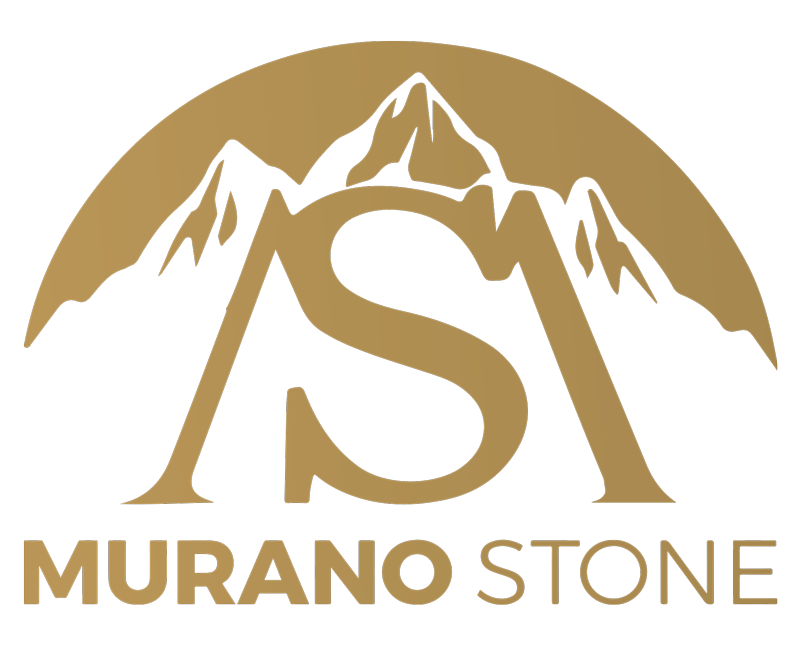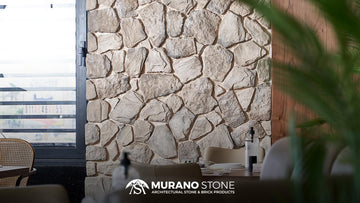When it comes to interior finishing, the choice of materials can significantly impact the aesthetics, functionality, and overall feel of a space. One material that has gained popularity over the years is artificial stone. Known for its versatility, cost-effectiveness, and aesthetic appeal, artificial stone has become a go-to choice for many interior designers and homeowners alike. In this blog post, we will explore the advantages of artificial stone to provide a view for those considering it for their next project.
Advantages of Artificial Stone | What is Artificial Stone?
Artificial stone, also known as engineered stone or man-made stone, is a composite material made from crushed natural stones, resin, and other additives. This material is then molded into slabs or tiles that can mimic the appearance of natural stone, such as marble, granite, or limestone. The manufacturing process allows for a wide range of colors, textures, and finishes, making artificial stone a highly customizable option for interior design.
Advantages of Artificial Stone Material for Interior Finishing
1. Aesthetic Versatility
One of the most significant advantages of artificial stone is its aesthetic versatility. Unlike natural stone, which is limited by the colors and patterns found in nature, artificial stone can be engineered to achieve virtually any look. Whether you desire the luxurious appearance of marble, the rugged texture of granite, or the subtle elegance of limestone, artificial stone can be tailored to match your vision. This versatility extends to the finish as well, with options ranging from high-gloss to matte, and even textured surfaces that add depth and character to a space.
2. Cost-Effectiveness
Another one of the main advantages of artificial stone is its cost-effectiveness. Natural stone can be expensive, especially when considering the cost of extraction, transportation, and installation. Artificial stone, on the other hand, is generally more affordable. The manufacturing process allows for mass production, which reduces costs and makes high-quality, stone-like finishes accessible to a broader audience. Additionally, the installation of artificial stone is often less labor-intensive, further lowering overall costs.
3. Durability and Strength
Artificial stone is engineered to be highly durable and resistant to many of the issues that plague natural stone. For example, natural stone can be prone to chipping, cracking, and staining, particularly in high-traffic areas. In contrast, artificial stone is designed to withstand everyday wear and tear, making it an excellent choice for areas like kitchens, and bathrooms. The resins used in its production enhance its strength, making it less likely to chip or crack under pressure. Moreover, artificial stone is non-porous, which means it is less susceptible to staining and does not require sealing like natural stone.
4. Consistency in Appearance
One of the challenges with natural stone is the inconsistency in color and pattern from one slab to another. This can make it difficult to achieve a cohesive look, especially in larger spaces. Artificial stone, however, offers consistency in appearance, as each slab or tile can be manufactured to have uniform colors and patterns. This consistency is particularly beneficial when covering large areas or when a specific design theme is required.
5. Environmental Impact
For those concerned about sustainability, the advantages of artificial stone include its lower environmental impact compared to natural stone. The extraction of natural stone can lead to habitat destruction, energy-intensive processing, and significant carbon emissions. Artificial stone, however, is made from a combination of natural materials and recycled content, reducing the need for quarrying. Additionally, the manufacturing process can be controlled to minimize waste and energy consumption, making it a more eco-friendly option.
6. Ease of Maintenance
Artificial stone is incredibly easy to maintain. Its non-porous surface means that it is resistant to stains, mold, and bacteria, making it a hygienic choice for kitchens and bathrooms. Regular cleaning with mild soap and water is usually sufficient to keep artificial stone looking its best. Unlike natural stone, which may require special cleaners or sealants, artificial stone is low-maintenance, saving you time and money in the long run.
7. Customizability
One of the standout advantages of artificial stone is its customizability. Because it is man-made, artificial stone can be produced in a wide range of shapes, sizes, and colors. This allows designers and project owners to create unique, personalised spaces that reflect their tastes. Whether you want a specific color to match your décor or a particular texture to add interest, artificial stone can be tailored to meet your exact specifications.
8. Lightweight and Easy to Install
Artificial stone is generally lighter than natural stone, which makes it easier to handle and install. This can be particularly beneficial in projects where weight is a concern, such as in the construction of feature walls, fireplace surrounds, or backsplashes. The ease of installation not only reduces labor costs but also shortens the overall project timeline, allowing you to enjoy your newly finished space sooner.
Conclusion
In conclusion, the advantages of artificial stone is an excellent choice for those looking for a blend of beauty, durability, and cost-effectiveness in interior finishing projects. With its aesthetic versatility, resistance to environmental factors, and ease of maintenance, artificial stone can bring a luxurious and unique touch to any space, whether it's a kitchen, bathroom, or interior walls. The ability to customise the texture and colour, combined with the eco-friendly benefits, makes artificial stone a smart choice that balances innovation with practicality in the world of interior design.



